Looking for a Merchant of Record (MoR) platform to simplify global sales?
If you're selling digital products or services online, handling taxes, compliance, and international payments can get messy fast.
That’s where Merchant of Record platforms come in.
They take care of the hard stuff so you can focus on selling. Here are some top MoR options to consider.
Let’s dive in!
What is a Merchant of Record (MoR)?
A Merchant of Record (MoR) is the official seller of your products or services when a customer makes a purchase.
That means they handle
- processing payments,
- ensuring legal compliance, and
- dealing with chargebacks or refunds.
Top 9 Merchant of Record platforms for freelancers in 2025
As an independent, you already have many responsibilities. A MoR platform can help you focus on your tasks and lessen your mental workload.
Here are top 9 MoR platforms that will manage payments for you.
1. Ruul
Trustpilot Rating: 4.7
G2 Rating: 4.9
- Best for: Independents like freelancers, digital creators, and consultants working with international clients
- Key features:
- Global and local tax compliance
- Creating payment requests
- Selling services or products
- Automating regular invoices for subscriptions
- Flexible payouts (190+ countries and 140+ currencies & crypto)
- Seamless onboarding
- Responsive customer support
- Pricing: No membership fee, only transaction fee
Ruul (yep, that’s us) is a MoR platform for freelancers and remote workers who want to get paid globally. Whether you’re selling a service, a digital product, or a subscription-based software, it’s got your back.
PS: Ruul buys your service, handles taxes, compliance, and invoicing, then resells it to your client.
Who should choose Ruul as MoR?
If you're a freelancer looking to automate global invoicing, you might like Ruul. You'll especially love it if you offer recurring services like writing, coaching, design or social media management.
How does it work?
Let's see how Ruul's MoR works, step by step. See if it's the right fit for your workflow.
Authorization
It’s easy and free to sign up for Ruul. Once done, your account gets created instantly.
To start sending invoices, you’ll need a verification using your ID and a quick selfie. This part is to protect you, and you’ll do this just once (and it will take just a few minutes).
It’s a safe and standard process, nothing to stress about.
Payment request
The interface is easy to use. You’ll add a client and select the currency to collect payment from the client and your account that you want to get paid to. This is also where you select who pays the commission with a click.
Billing & Checkout
Ruul, acting as your Merchant of Record, onboards your client and handles invoicing and payment collection in the preferred currency and method.
Then your client gets an email or can just pay using the payment link without registering for the platform.
Payment collection
You can get paid in 140+ currencies, and the best part is crypto payout is included. Ruul will send your payment to your account within 1 day, depending on your preferred method.
You can add multiple payment accounts to the platform. For example, you can add a Binance account to receive USDC payments. You can also have bank accounts for different currencies from different countries.
2. Paddle
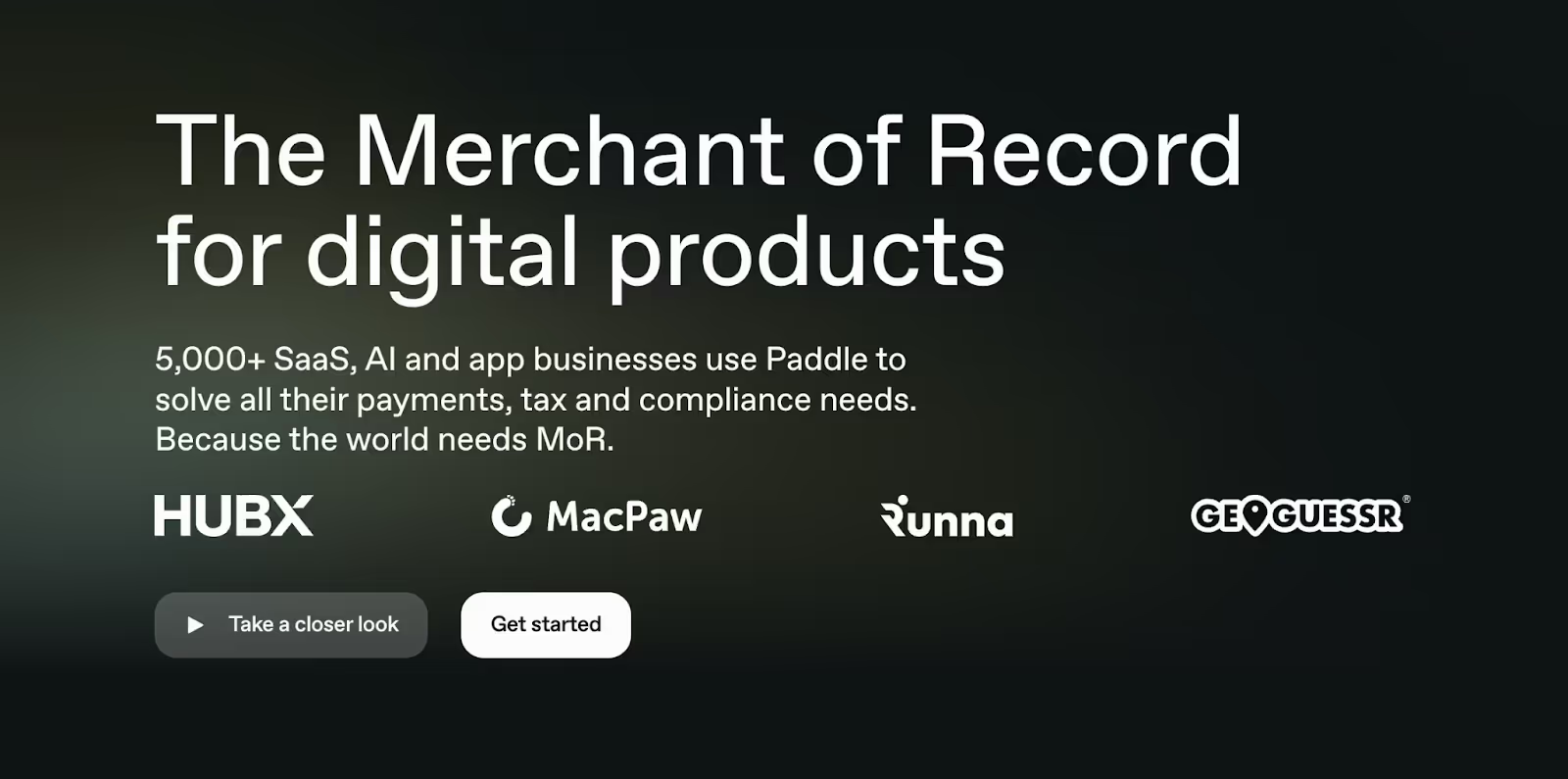
Trustpilot Rating: 4.3
G2 Rating: 4.5
- Best for: Developers and tech creators offering digital products or software subscriptions
- Key features:
- Subscription billing
- Global tax compliance with automatic calculations
- Fraud protection & chargeback management
- Migration services
- Upsell insights
- Pricing: Transaction-based; approx. 5% + fixed costs
Paddle is mainly focused on SaaS tools and subscriptions. It offers in-depth analytics and subscription scaling options tailored for SaaS businesses.
Their fee is pretty much in line with the rest of the market, and it charges per transaction, not subscription-based. One thing that makes it stand out is its AI-powered fraud protection.
One thing to consider:
When I did some research, I got a bit confused about customer support. For example, on G2, customer support has both pros and cons.
Also on their website, we see that they provide customer support to help users start, but the premium advisory is available for SaaS businesses with a large transaction volume. I recommend considering this as a responsive customer service can save you time and money.
Who should choose Paddle as MoR?
If you are a freelance software developer and want to sell a subscription-based tool, you can choose Paddle.
This page welcomes you when you register, which is great.
Because here you can decide if Paddle is for you or not.
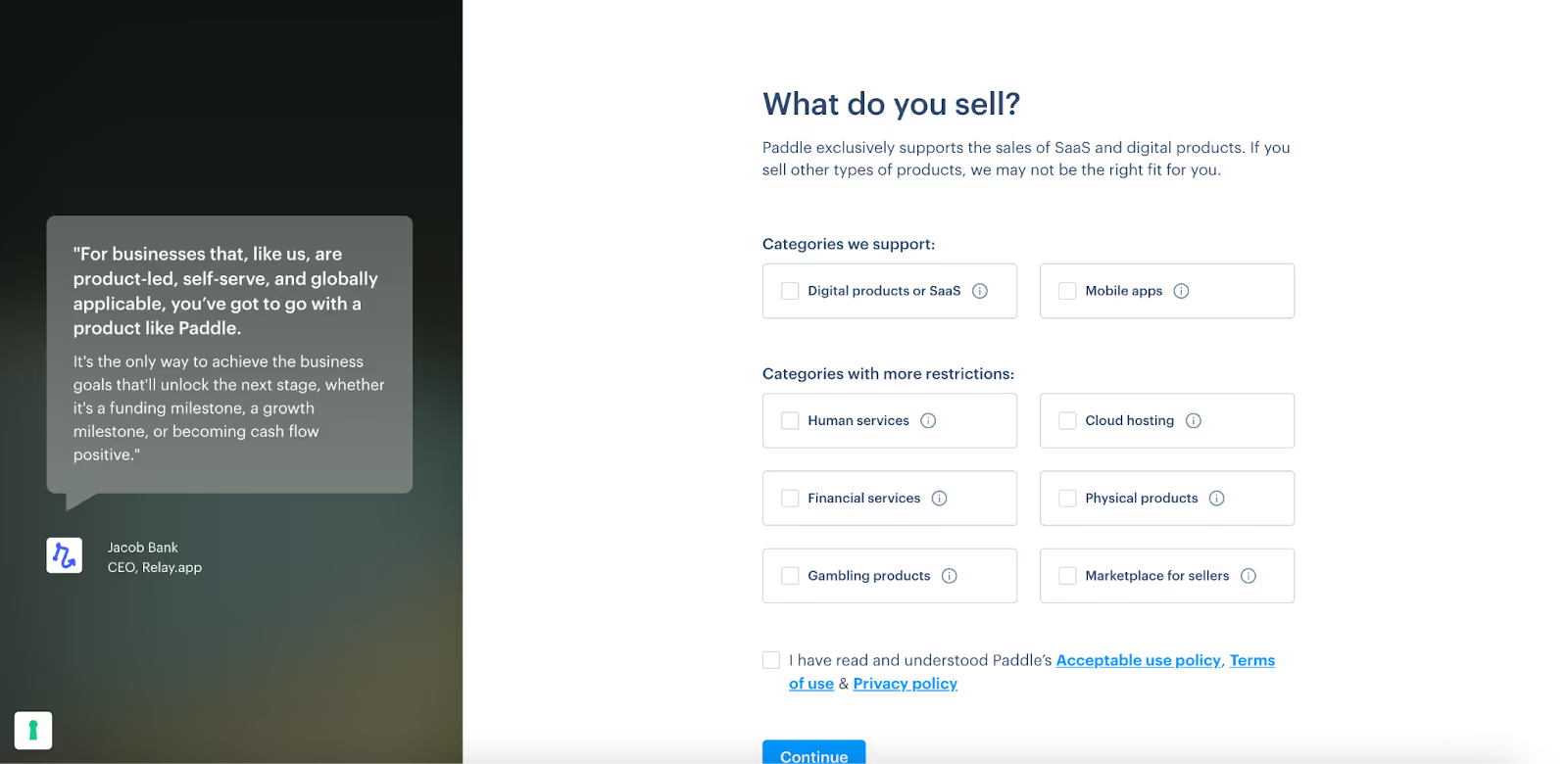
Please note that they support digital products or SaaS and mobile apps. The other 6 categories are not accepted or require contacting sales for more guidance around this.
3. Dodo Payments
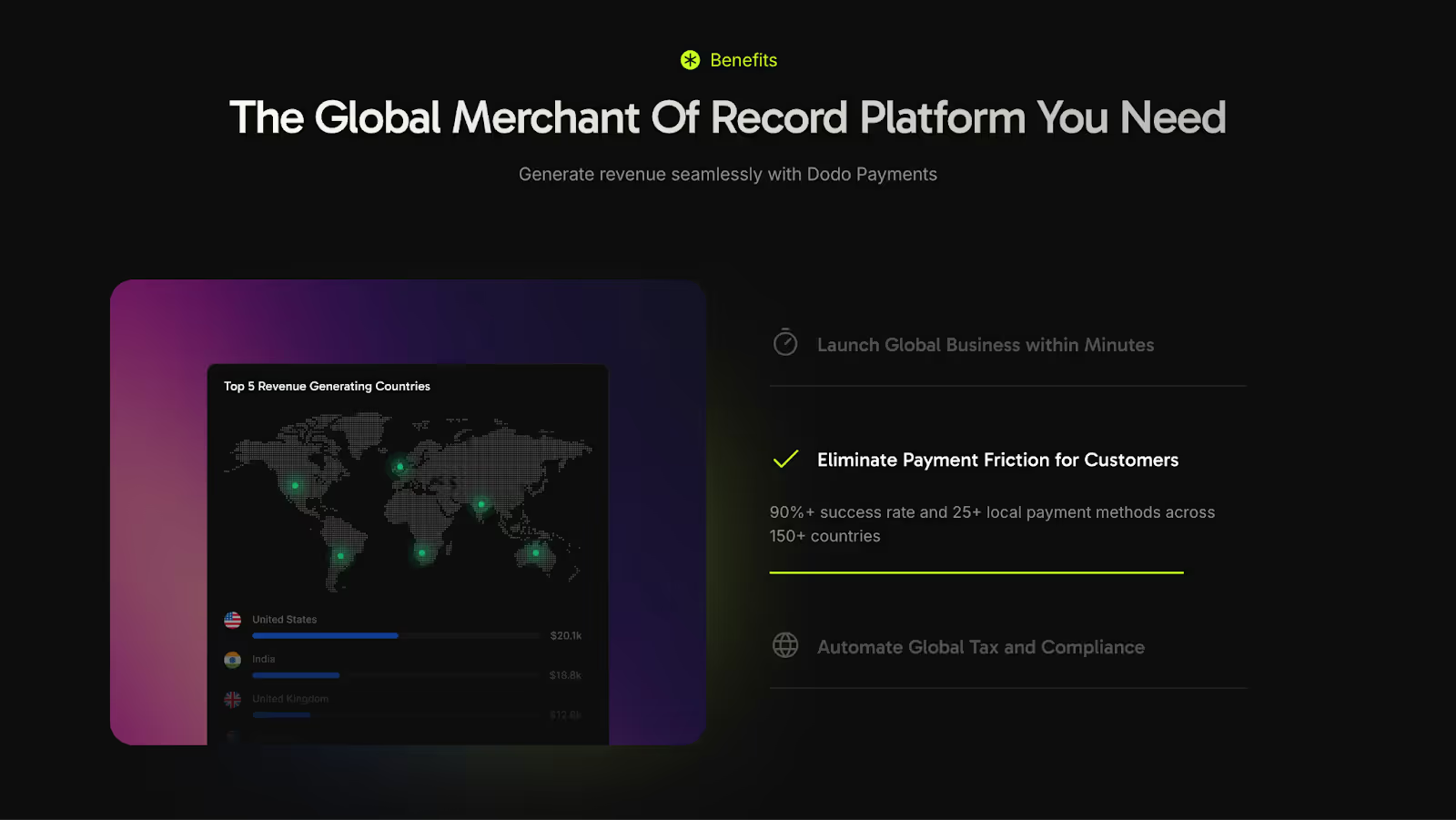
Product Hunt Rating: 5.0
- Best for: Freelancers selling digital products and working across Asia, LATAM, and Africa
- Key features:
- 25+ localized payment options
- One-time payments & subscriptions
- Digital product sales
- Automatic tax calculation
- Local wallets & fiat-to-crypto support
- Real-time analytics & multilingual dashboard
- Pricing: Custom, based on country and transaction volume
Dodo Payments targets emerging markets. It provides global payment compliance targeting solopreneurs, micro SaaS founders, and other independents in Asia, Africa, and LATAM regions.
Notice that: There are two things they can fix.
First, it’s so hard to understand which currencies you can collect payment in. I see they have many payment options, but it would be nice to know if your currency is supported before dealing with the registration.
Second is this price comparison chart. It’s a bit unrealistic, honestly speaking.
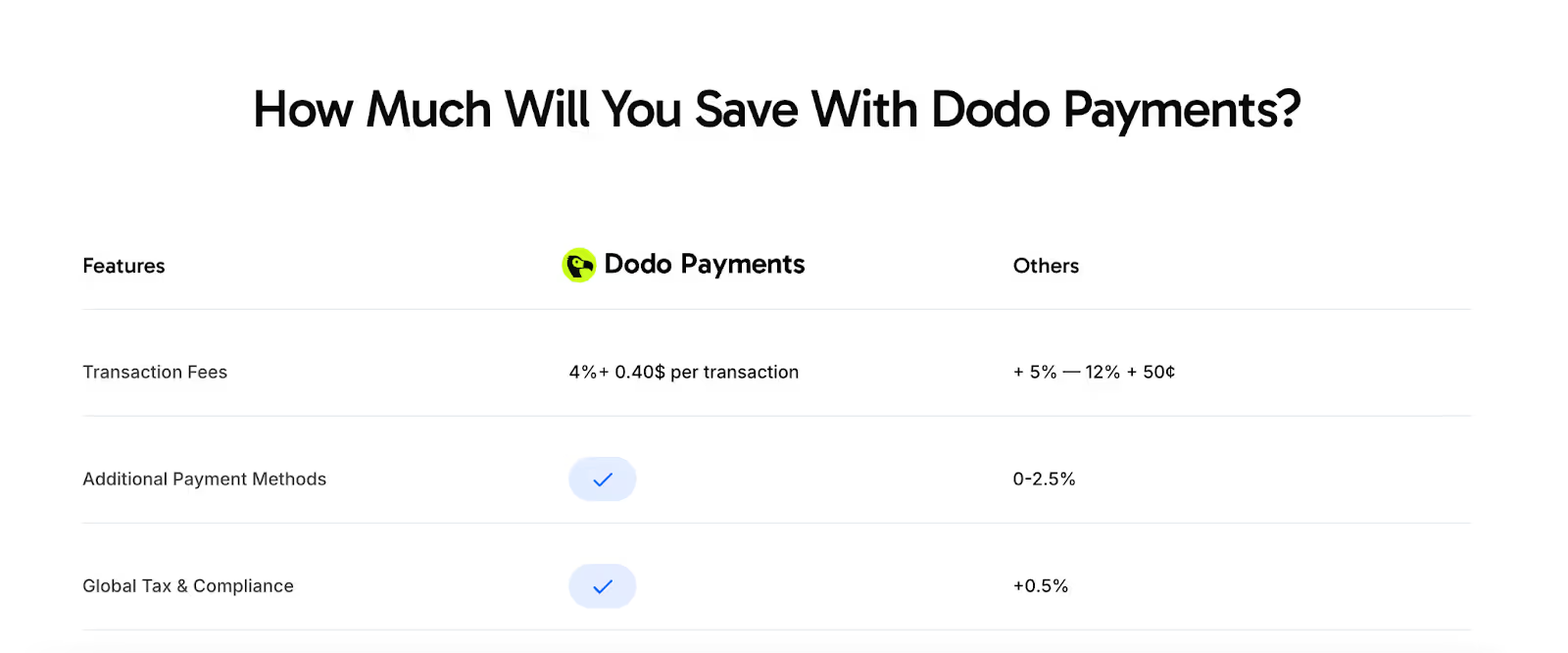
Who should choose Dodo Payments as MoR?
If you're a freelancer with clients in Asia, Latin America, and Africa, you might like Dodo for easy collection with local payment methods.
4. Gumroad
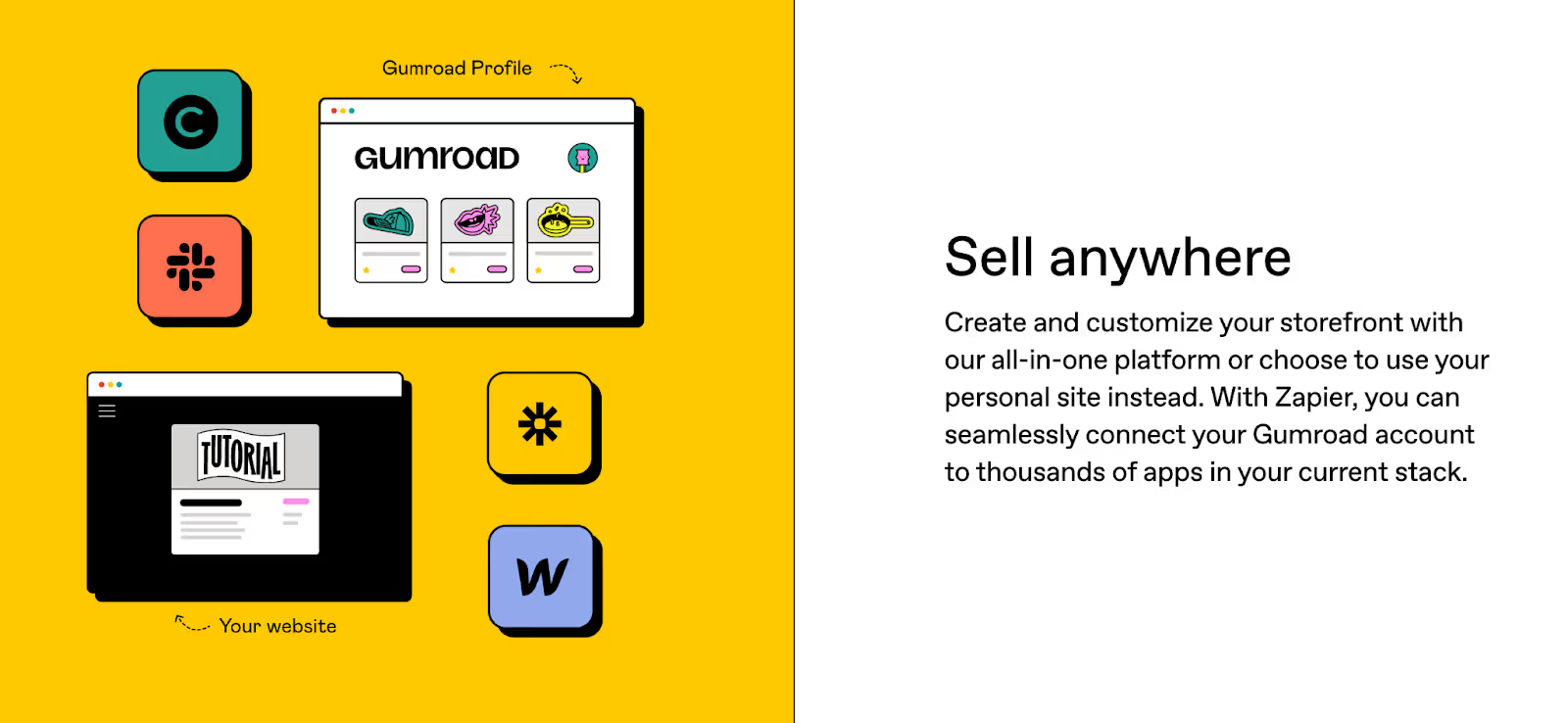
G2 Rating: 4.2
- Best for: Freelancers and content creators who want to sell their digital products on a simple MoR infrastructure
- Key features:
- Simple and intuitive interface
- Digital and physical product sales
- Subscription management
- File hosting and delivery
- VAT compliance
- Affiliate program
- Analytics
- Pricing: 10% + $0.50 and payout fees
Gumroad is one of the first to come to mind when it comes to selling digital products. It is known for its simplicity. But it really is.
This platform is focused directly on digital products. You can sell comics, design templates, eBooks, or anything digital you can think of.
So far, so good, but the commission fee is heartbreaking. At 10%, it's almost twice as much as the competition.
The harsh reality is that Gumroad's red flag is a bit big.
If only it weren't so expensive, then it might have a chance. It costs twice as much as the others and almost three times as much as Ruul.
Yes, that's 10% + 50 cents. And that's not even counting the other bank charges.
At times like this, I ask, ‘If you charge that much, what are you giving me in return?’ I want to see that.
Who should choose?
Gumroad is the right place to sell informational eBooks, guides, and artwork. However, as a beginner, the 10% fee might be too much. Moreover, most opponents are charging 5%. Even in Ruul, this rate drops to 2.75%.
5. SubscriptionFlow
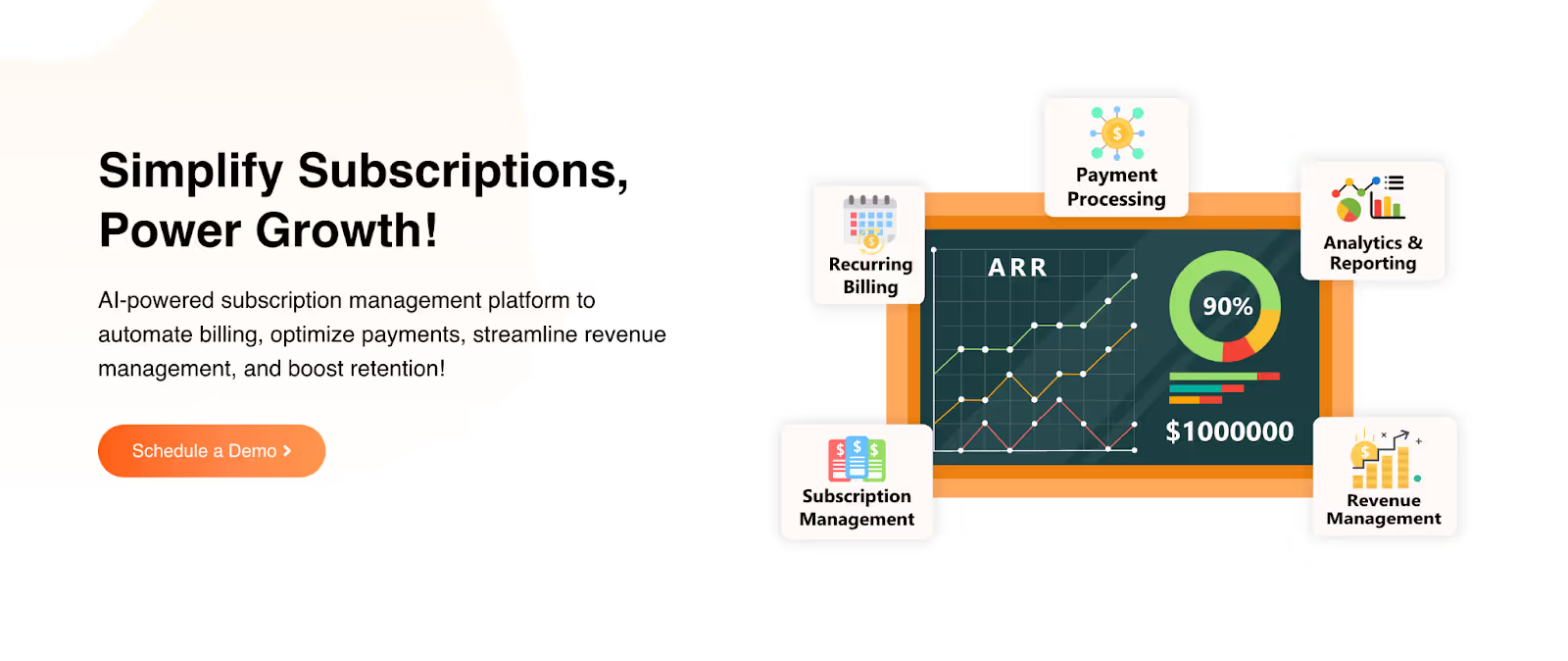
G2 Rating: 4.3
- Best for: Freelancers offering subscription-based services and needing automation
- Key features:
- Automated invoicing & recurring billing
- Compliance & tax tools
- Workflow automations
- Client portal for easy access
- Pricing: Starts at $99/month
One sad thing: The sad part is that in the age of product-led companies, SubscriptionFlow targeting the SaaS field doesn’t allow you to get started on your own.
One good thing: The good part is that it allows custom billing models and different pricing strategies for recurring subscriptions. Plus, it provides customer insights and data-driven success recommendations to prevent negative churn.
If you’re patient enough to try it.
Who should choose SubscriptionFlow as MoR?
It caters to one-person entrepreneurs and businesses. Especially if you're struggling to offer subscription-based services or expand internationally.
However, the starting price of $99/month can be a stopper for many freelancers. In this case, platforms that charge per transaction may be a smarter option.
6. Fourthwall
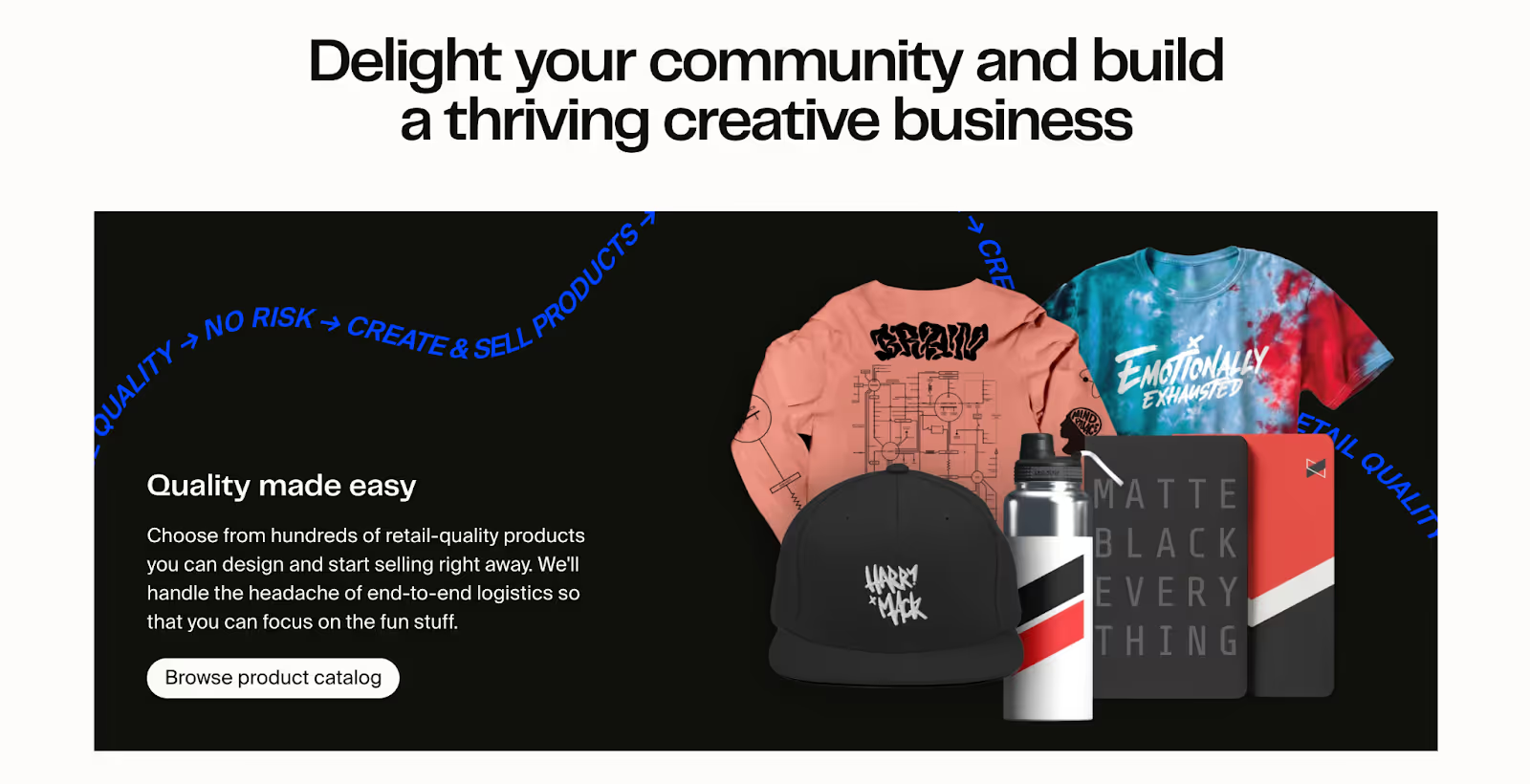
Trustpilot Rating: 4.7
- Best for: Creators and e-commerce freelancers selling directly to their audience via online stores
- Key features:
- Customizable shop, products, and checkout
- Sales tax handling & payment integrations
- Monetizing with subscriptions
- Print-on-demand products
- Custom domains
- Client analytics
- Pricing: 5% transaction fee + Stripe/PayPal processing fees
Fourthwall is about having an online shop, where you can sell physical and digital products.
Their difference: Their difference is visible if you’re selling print-on-demand products. Everything from printing to shipping and invoicing is handled within the platform. That’s cool.
Additionally, you can also offer monthly subscription plans that give your followers access to exclusive content and perks for a fixed price.
Who should choose Fourthwall as MoR?
If you are doing e-commerce with the print-on-demand model, you can choose Fourthwall.
It is ideal for adding your own designs to dozens of ready-made products on the list, marketing them to your own followers on social media, and selling them all over the world.
7. Lemon Squeezy
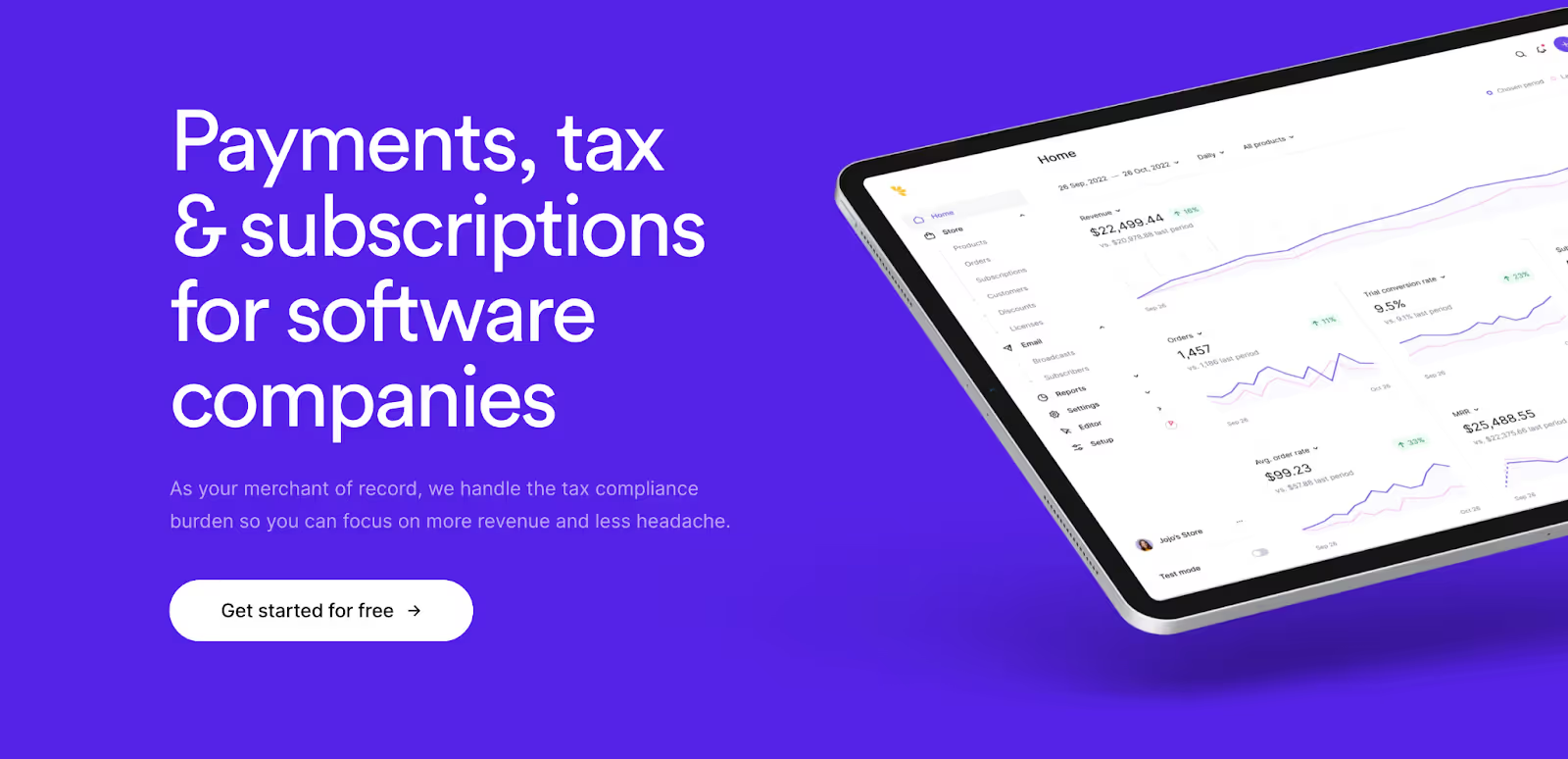
Product Hunt Rating: 4.2
- Best for: Small businesses, solopreneurs, and creators focused on selling digital products, software, and subscriptions.
- Key features:
- Payment processing
- Subscription Management
- Digital product sales
- License key management
- No-code store and forms
- Integrated marketing tools
- Fraud protection with AI
- Pricing: 5% + 50¢ and payout fees
Lemon Squeezy focuses on SaaS software and digital products. In 2024, it was acquired by Stripe, and in 2025, it integrated Stripe directly into payments.
Some people loved that, while others changed their MoR after that. So, it’s hard to mention this under pros or cons. I guess it depends on where you are.
Functionally, it is similar to Paddle, but its scalability is different. Lemon Squeezy is closer to individual developers and small businesses.
On this platform, you can create no-code stores, manage subscriptions, and get easy payments with Stripe integration.
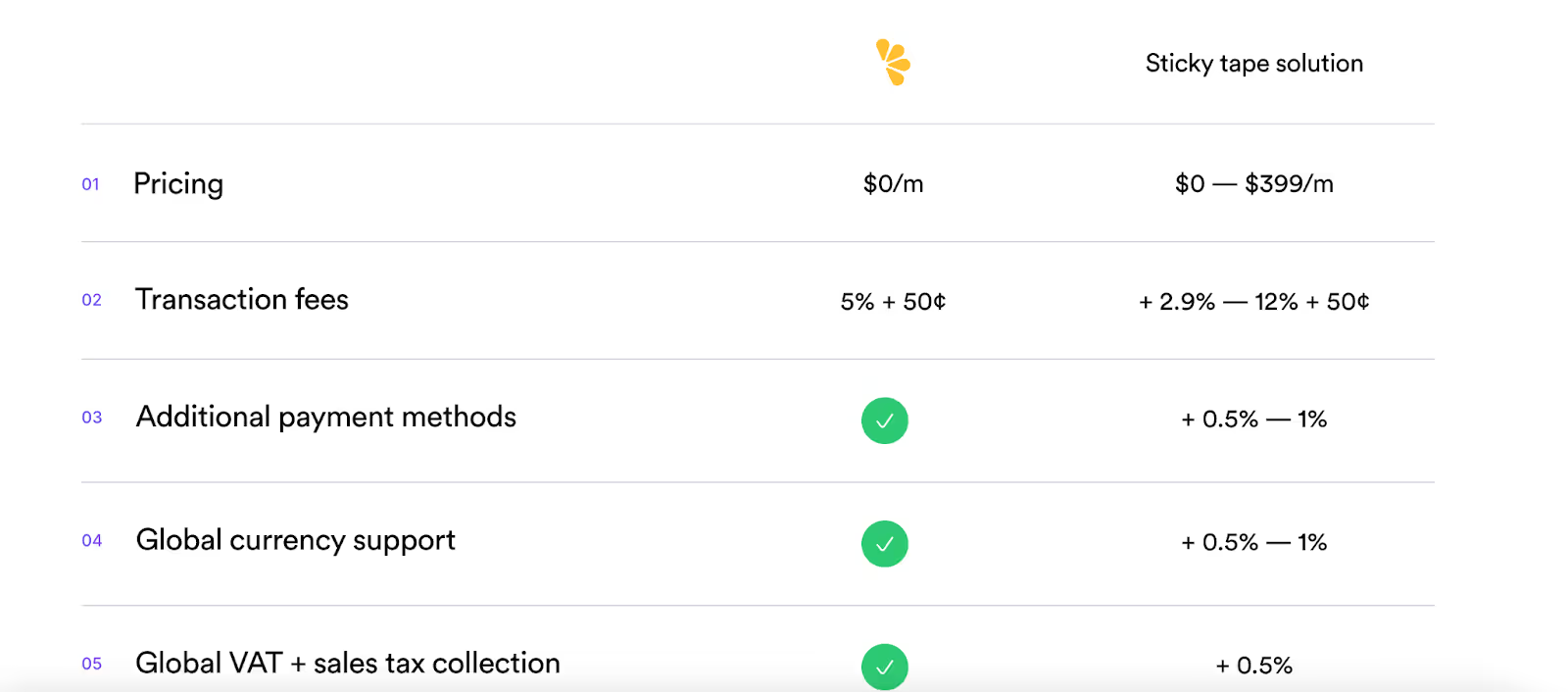
Who should choose Lemon Squeezy as MoR?
It can help you if you want to realize your dream SaaS simply and don't want to drown in technical details. If you don't have technical knowledge and want to get started easily, you can choose Paddle instead.
8. FastSpring
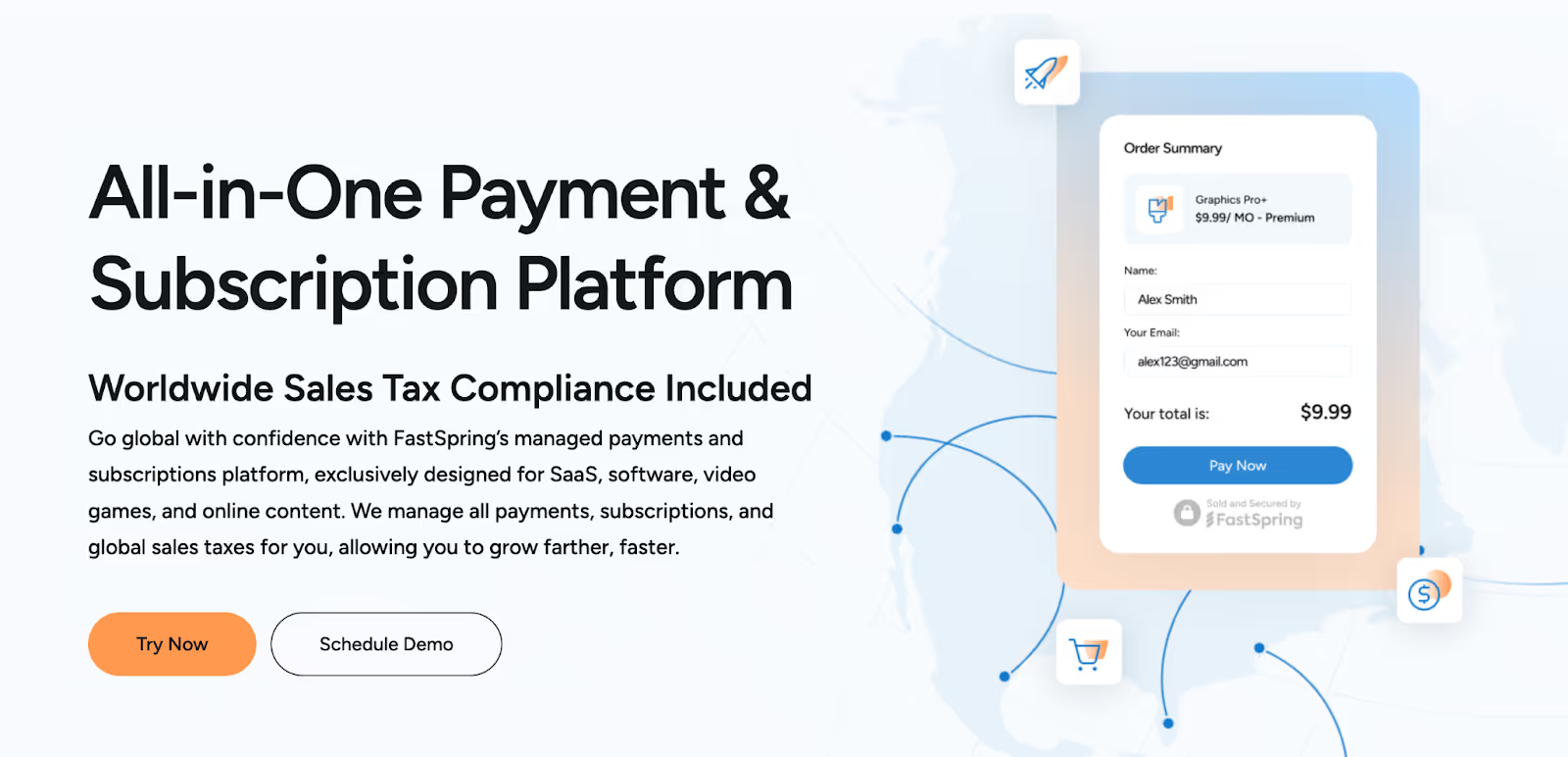
G2 Rating: 4.5
- Best for: Freelancers and independent developers selling SaaS, software, video games, and online content
- Key features:
- Global payment management
- Subscription management + billing
- Store with or without code
- Tax compliance
- Fraud protection
- Reporting and analysis
- Digital invoicing
- More than 200 regions
- Pricing: Unclear
FastSpring is used for SaaS and software aimed at growth. It is similar to Paddle because they both focus on SaaS and subscription-based software.
They allow flexible subscription plans and on-demand coded and non-coded stores. This makes Fast Spring suitable for beginners and professionals alike.
But, how much does it cost? We don't know.
If you want to compare it with others, that platform should be Paddle.
We can't compare the price because Fast Spring hasn't added information on their website. But I know they charge a flat fee, so it's possible that they may be pricing based on volume.
If you want to make a price comparison to switch to Fast Spring, remember that you need to contact the sales team directly.
Who should choose FastSpring as MoR?
Fast Spring is not a bad option if you are looking for a MoR for direct SaaS growth.
9. Fungies

Trustpilot Rating: 4.1
- Best for: Freelancers who want to grow SaaS, develop games and sell digital products.
- Key features:
- Digital product sales
- Manage subscriptions
- Create a store
- Global tax compliance
- Automatic billing
- Showcase customization
- Demo support
- Pricing: 5%+50% fee per sale
Fungies is a platform frequently compared to FastSpring due to their similarities. It operates as a full Merchant of Record (MoR). It stands out for being particularly well-optimized for the EU and LATAM regions.
Regarding what you can sell, you can offer SaaS software, games, and digital products on the platform.
Who should choose Fungies as MoR?
A strong MoR alternative for SaaS. However, there are more user-friendly alternatives for selling digital products. If you're only selling eBooks, ready-made templates, and similar products, it will likely be overkill for you.
How to choose the right MoR for your business?
Here’s what to look for:
- Fees & transparency: What will you pay per transaction or subscription?
- Supported currencies: Can it handle your client’s payment method?
- Payout flexibility: Crypto? Instant transfers? Bank wires?
- Legal & tax support: Does it reduce your admin burden or add to it?
- Support & UX: Can you reach a human? Is the platform easy to navigate?
🔍 Pro tip: Match your business model to the platform's strengths.
Streamline your payments
Choosing the right MoR could be the smartest decision. Not just because of the speed, but also because you can do it safely and legally.
Look at what you do from a distance: Do you sell software, are you a project-based graphic designer, or have you developed a subscription-based tool? The payment solution for each is different.
Frequently asked questions
What is a Merchant of Record, and why do freelancers need one?
A Merchant of Record (MoR) is the legal seller in a transaction. It processes payments, collects taxes, and handles compliance so freelancers don’t have to.
Are there fees associated with using MoR platforms?
Yes, most MoRs charge fees, but they vary. Always compare pricing models based on your transaction volume and services used.
Can I receive payments in cryptocurrencies through MoR platforms?
Yes. Ruul and Dodo Payments support crypto payouts.
How does Ruul's MoR model benefit freelancers?
Ruul buys services from freelancers and resells them to clients. This simplifies invoicing, tax handling, and compliance for global payments.










